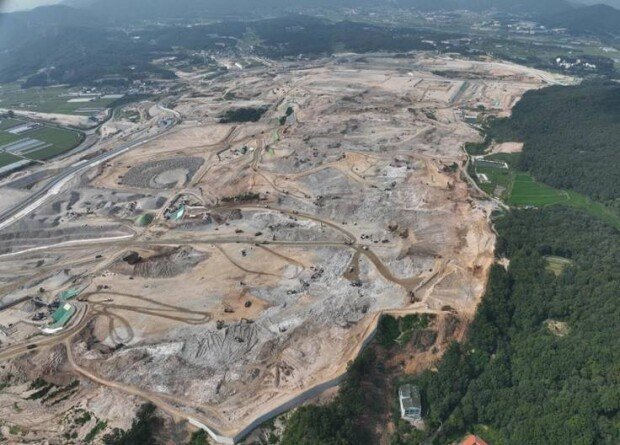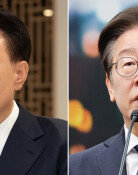Gov’t to approve Yongin Semiconductor National Industrial Complex
Gov’t to approve Yongin Semiconductor National Industrial Complex
Posted December. 19, 2024 07:44,
Updated December. 19, 2024 07:44

The government has decided to shorten the administrative procedures for the ‘Yongin Semiconductor National Industrial Complex,’ which will be developed as the world’s largest system semiconductor cluster, by three months, aiming to complete the approval of the industrial complex plan within the year. It will also review related system improvements to facilitate investments in aging professional sports stadiums.
On Wednesday, the Ministry of Economy and Finance announced the ‘Plan to Activate Corporate and Regional Investment,’ which includes these initiatives. “There are concerns that corporate investment plans may be hindered due to the recent domestic political situation,” Vice Prime Minister and Minister of Economy and Finance Choi Sang-mok said. “The government will actively support our companies so that they can continue their investment activities without wavering.” The government plans to support seven projects worth 9.3 trillion won out of the 14 investment projects already planned, enabling actual investment, such as groundbreaking, within the following year.
First, the semiconductor national industrial complex in Yongin City, Gyeonggi Province, will have its administrative procedures streamlined by related ministries, including environment, transportation, and disaster impact assessments, shortening the process by about three months. The plan’s approval, originally scheduled for the first quarter of next year, will now be completed this month. To strengthen incentives for companies investing in the Myodo LNG hub terminal in Yeosu City, South Jeolla Province, an opportunity development special zone, the government will add clean fuel supply businesses such as LNG to the list of industries eligible for tax reductions.
Additionally, research services aimed at improving the investment and operation of professional sports stadiums to the level of advanced countries are set to begin in the first half of next year. An official from the Ministry of Economy and Finance explained, “Most professional sports stadiums are built, owned, and operated by local governments, but due to budget shortages, investment in stadiums has been sluggish, causing them to become outdated.” The government will review measures to improve the system in collaboration with related ministries. Of the 72 domestic professional sports stadiums, including baseball fields, soccer fields, and community gyms, 49 have been used for over 20 years.
세종=이호 number2@donga.com
Headline News
- Internal rebellion investigation transferred to Public Prosecutor's Office
- Gov’t to approve Yongin Semiconductor National Industrial Complex
- US conservatives rally around Trump’s third term
- Lee Hyo-song named youngest Rookie of the Year in JLPGA history
- Controversy escalates over the appointment of Constitutional Court justices







